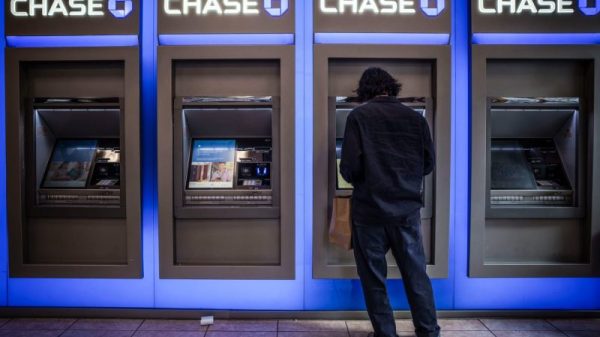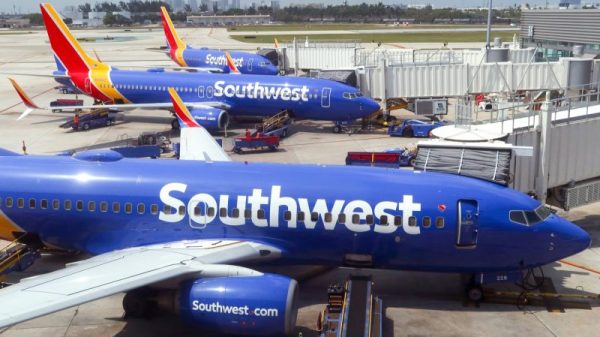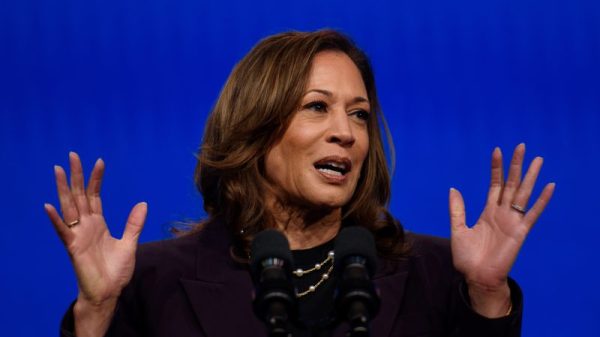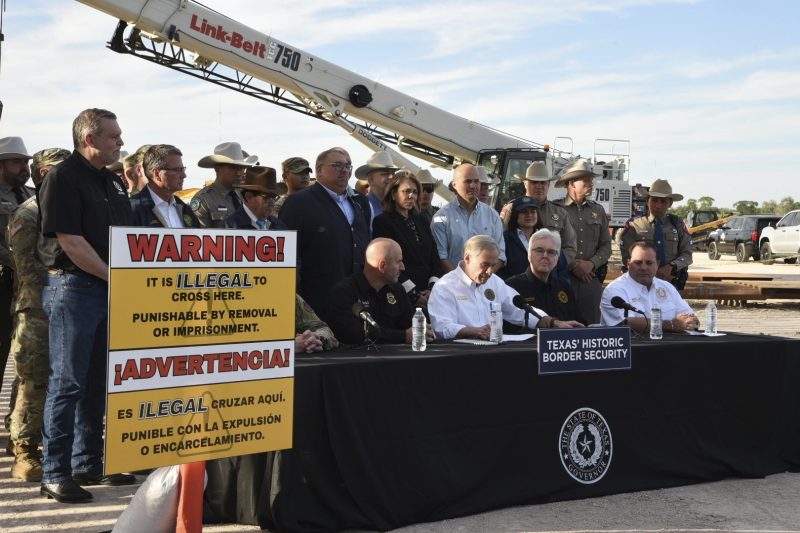A group of Texas civil and immigrant rights organizations, El Paso County and the American Civil Liberties Union filed a lawsuit Tuesday challenging the constitutionality of a new law empowering state law enforcement to arrest and deport immigrants suspected of entering illegally from Mexico.
Texas Gov. Greg Abbott (R) welcomed the expected legal challenges in a defiant speech Monday as he signed S.B. 4. The law sets up a potential showdown between Texas and the federal government over who has ultimate authority to protect borders and enforce immigration law.
“Immigration is a quintessentially federal authority,” the complaint reads, arguing the law violates the Supremacy Clause of the U.S. Constitution. “A state cannot replace Congress’ immigrant scheme with its own.”
The law, which goes into effect in March, also gives Texas courts the power to order immigrants suspected of entering the state illegally to return to the country through which they entered.
“These laws will help stop the tidal wave of illegal entry into Texas,” Abbott said in a statement.
El Paso County Commissioners, who have presided over some of the largest influxes of migrants into its community, voted unanimously this week to sue the governor over the law’s expected implementation and potential costs to taxpayers. Several city immigrant rights organizations joined the lawsuit representing a community that has borne the brunt of changing immigration policy and managing housing for large numbers of asylum seekers.
The U.S. Supreme Court struck down elements of an Arizona law that gave state officials certain powers to enforce immigration policies in 2012, ruling that immigration enforcement is a federal responsibility. But a legal challenge to Texas’s legislation come before a more conservative bench.
The law is the latest in a drumbeat of increasingly aggressive tactics by Abbott to address the historic numbers of people seeking asylum and crossing the Texas border. His administration has bused tens of thousands of migrants to U.S. cities, deployed hundreds of Texas National Guard soldiers to place buoys in the Rio Grande and string razor wire on the Texas riverbank, empowered state troopers to arrest migrants on private property and charge them with state crimes.
His latest effort is widely expected to face legal challenges, which the governor has said he welcomes. Abbott has said repeatedly that he wants to force the Supreme Court to weigh in on what role Texas should have in stemming the record high cross-border migration of the last several years.
“President Biden’s deliberate inaction has left Texas to fend for itself,” Abbott said in his statement Monday.
Abbott also signed legislation passed after an unprecedented four special sessions of the Texas legislature that authorize $1.54 billion more in state border wall construction funding and sets a 10-year mandatory minimum sentence for human smuggling.
There were more than 2 million illegal crossings at the southwest border with Mexico for each of the past two fiscal years ending Sept. 30, according to data from U.S. Customs and Border Protection.
Entering the United States, other than through an approved crossing, is already illegal under federal law and is policed by federal authorities. However, migrants have a legal right to ask for protection when they step on U.S. soil regardless of how they entered.
The new Texas law criminalizes illegal entry under state law.
Law enforcement leaders across the state said they are analyzing the potential impact of the new laws.
Leaders of smaller agencies have said allocating resources to enforce immigration law could divert attention from protecting their communities. The governor’s Operation Lone Star has already overwhelmed small county jails and prosecutors with dockets full of cases of migrant men and recently, women, arrested on trespassing charges.
“I don’t have space in my jail,” said Maverick County Sheriff Tom Schmerber. His county is home to Eagle Pass, where federal officials recently closed down border bridges and railways where 1,000 to 5,000 migrants a day regularly attempt to cross the border. “I don’t know what we are going to do with all that.”
Some larger city and county departments have said they are concerned enforcing the new law will make them vulnerable to accusations of racial profiling and instill fear in immigrant communities with whom they’ve spent years building trust.
Cesar Espinoza, executive director of the Houston civil rights organization Fiel, said they have been holding well-attended town halls about the new measures with local leaders and police for their 16,000 members, many of whom are immigrants and undocumented. At any given moment, he said, 79 different law enforcement agencies — from constables to school resource officers — in the Houston-area alone will have this new power under the law.
That will weigh heavily on the minds of immigrants who comprise a significant portion of the Texas labor force and contribute to its economic success, he said.
“The substance and symbolism of this hateful bill strikes at the core of who we are as Americans,” state Rep. Armando Walle (D) said.
“This is Texas’s Prop 187 moment as it was in California. It’s worse than S.B. 1070 in Arizona,” Walle said, referring to two similar laws that galvanized voters in those states. The latter was blocked by the U.S. Supreme Court.
The new Texas laws are also a reflection of former president Donald Trump’s continuing rhetoric demonizing immigrants he deemed “illegal,” Walle said.
Over the weekend, Trump accused undocumented immigrants of waging an “invasion” of the United States, drawing renewed criticism of his rhetoric toward undocumented immigrants.
Abbott endorsed Trump last month for the 2024 GOP presidential nomination during an event at a border community 30 miles from the Hidalgo port of entry, which has received thousands of men, women and children from across the hemisphere.
“This is history what we’re doing today. And I hope it starts a conversation with the federal government. A country that doesn’t have a border ceases to be country,” said Sen. Charles Perry (R-Lubbock), who sponsored the bill, adding that he’s confident of its constitutionality.
Perry claimed migrants who cross the border illegally have cost Texas more than $12 billion in medical, education and other costs. He also noted public safety risks associated with drug and human trafficking on the border.
Molly Hennessy-Fiske contributed to this report from Houston.





























